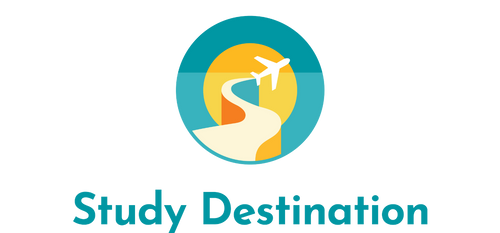Nestled in the northwest of Europe, Ireland stands proud as the third-largest island on the continent and the 20th largest worldwide. Known as the Emerald Isle, it’s a land brimming with fascinating culture and endless opportunities.
✨ What makes Ireland magical?
- Celtic mythology that sparks the imagination
- Ancient Viking castles full of history
- Legends of leprechauns and pots of gold at the end of rainbows 🌈
- The world-renowned Irish whiskey 🥃
Whether you're drawn to its rich folklore or vibrant lifestyle, Ireland offers an adventure like no other. But that's not all—here, you'll also discover how to live, study, and work in the land of St. Patrick. And spoiler alert: choosing Ireland is always a smart move!
Moving to Ireland is exciting, but it’s also essential to understand the cost of living, accommodation options, and the practicalities of setting up essentials like banking and phone services. This guide covers the basics to help you plan your new life on Ireland.
Cost of Living in Ireland 💸
Ireland is known for its high quality of life, but costs can vary depending on your lifestyle and city. Here’s what to expect for average monthly expenses:
-
Accommodation: Renting in Ireland, especially in cities like Dublin, can be pricey. On average, a shared room in Dublin may cost €400 - €600 per month, while a one-bedroom apartment can range from €650 - €1,200 in a non-central area and up to €2,000 in central locations. Outside of Dublin, places like Cork and Galway offer more affordable options.
-
Food and Groceries: Expect to spend around €150 - €200 monthly on groceries. Ireland’s major supermarkets (Tesco, Aldi, Lidl) offer a range of budget-friendly options. Example Prices:
- 1L Milk: €1 (USD 1.08)
- 1kg Rice: €1.38 (USD 1.49)
- Dozen eggs: €3 (USD 3.24)
- 500g Bread: €1.61 (USD 1.74)
- 1kg Apples: €2.50 (USD 2.70)
- 1kg Potatoes: €1.52 (USD 1.65) -
Transportation:
Public transport is affordable and reliable. Dublin’s system includes buses, trains, and the Luas tram. Many locals also cycle around the city.
Prices:
- Single bus ticket: €2.70 (USD 2.92)
- Monthly pass: €120 (USD 130)
- Used bicycle: €100–€150 (USD 108–162)
Average Transport Cost: €100 (USD 108)
-
Utilities and Internet: Budget approximately €50 for internet and €87 monthly for utilities. Costs can vary depending on your accommodation type.
-
Extras: To enjoy a pint of beer, expect to pay around €6. Gym memberships cost around €43 monthly, while cinema tickets average €13.
Monthly Budget Summary 🧾
- Accommodation: €700
- Food: €150
- Transport: €100
- Extras: €150
Total Approximate Cost: €1,100–€1,300 (USD 1,189–1,405)
Accommodation Options for Students in Ireland 🏡
Finding a comfortable place to live is a priority. Here’s what you need to know about housing in Ireland:
Accommodation is the largest expense. In Dublin, the city is divided by the River Liffey into areas with even (one side) and odd numbers (the other side).
- Affordable and well-located areas: 1, 7, 8, 9
- Touristy area: Dublin 2 (often expensive)
- Residential/safe areas: 4 and 6 (embassies and consulates are here)
1. Temporary Accommodation
- It’s best to book temporary accommodation, like a hotel or hostel, before you arrive. Once settled, you can visit potential homes in person and avoid rental scams.
2. Long-term Options
- Shared Apartments: Popular with students, these typically offer affordable rates, especially in shared rooms.
- University Dorms: Some universities offer on-campus housing, but these spots fill up quickly.
- Homestays: Staying with a local family is a great way to experience Irish culture firsthand.
High Season
From June to September, rental demand peaks, so plan ahead if you’re arriving during this time. Always request a receipt or documentation for any payments, and be aware of each city’s rental regulations to protect your rights as a tenant.
How to Find Accommodation in Ireland: Tips and Best Practices 🏠
Finding accommodation in Ireland can be challenging, especially during peak seasons. Here’s how to streamline your search and secure the perfect place to live:
Ireland’s rental market is competitive, particularly in cities like Dublin, Cork, and Galway.
Use Trusted Platforms
- Daft.ie: Ireland’s largest rental platform, ideal for finding apartments, shared housing, and student accommodations.
- Rent.ie
- Facebook Groups: Join student-focused groups for rental postings and advice from the community.
- College Housing Offices: Many universities have housing portals or partnerships to assist students with on-campus or nearby accommodation.
Visit in Person (When Possible)
While online bookings may seem convenient, visiting properties in person helps avoid scams and ensures the space meets your expectations. If you can’t visit, request a virtual tour and verify the landlord’s identity before transferring money.
Network Locally
Reach out to current students, local community groups, or friends already living in Ireland. Personal recommendations often lead to quicker and more reliable results.
Prepare Documentation
Landlords may request references, proof of enrolment, or financial stability. Having these ready can speed up the rental process.
Short-Term Stays for Flexibility
Book temporary housing such as hostels, hotels, or short-term Airbnb rentals. This gives you time to explore neighbourhoods and find the right fit.
Banking in Ireland 💳
Opening a bank account is a straightforward process and makes managing finances easier, it also increases the chances of getting selected for a job. Here’s how to get started:
1. Required Documents
- Passport: Ensure it’s valid.
- Proof of Residence: A utility bill or letter from Irish Revenue is usually sufficient.
- PPS Number: You’ll need a Personal Public Service Number (PPS) for tax purposes, which requires proof of a fixed address.
2. Choosing a Bank
- Bank of Ireland: Extensive services but higher fees.
- AIB Bank: Quick setup, accessible, and low fees for accounts under a specific income level.
- Ulster Bank: Low maintenance fees.
- Permanent TSB: Popular for its affordable fees, similar to AIB.
- N26: A virtual German bank that's user-friendly but may not be accepted by all Irish employers.
👉 Pro Tip: Schedule your appointment—most banks won’t allow walk-ins for account openings.
3. 🏦 How to Open Your Account
-
Book an Appointment
- Contact your chosen bank to schedule a time to open your account.
-
The Appointment Day
- Bring the required documents: passport, proof of residence, and PPS Number.
- Some banks might give you forms to complete beforehand; if not, you’ll fill them out during your visit.
-
Account Activation
- Within 48 hours, your account will be ready to receive payments.
- Your debit card will arrive by post within two weeks.
-
Deposits & Withdrawals
- Once your debit card arrives, activate it at an ATM and set your PIN.
- You can then deposit cash or withdraw funds. Keep in mind, some banks may ask for proof of the source of funds if you’re depositing large sums.
💡 Final Tips
- Research and compare each bank’s fees, conditions, and services before deciding.
- Choose a bank with branches near your home for convenience.
- Opening your account in smaller towns can often be faster and easier than in larger cities like Dublin, where requirements might be stricter.
By following these tips, you’ll avoid unnecessary headaches and be set up for success in no time! 😊
Essential Services: Phone and Internet 📱
Phone Services
Staying connected is key, and local phone plans are affordable and flexible. Ireland’s main providers are Eir Mobile, Three, and Vodafone. For €20 per month, you can access unlimited calls, texts, and 4G internet. Compare plans to find the best fit.
Internet
If you’re living in private accommodation, you’ll likely need to set up Wi-Fi, with costs averaging €50 per month. Check with your landlord or property management to confirm any setup requirements.
Tips for Budgeting and Saving in Ireland 💡
Grocery Shopping
Stick to major supermarkets like Aldi, Lidl, and Tesco for affordable groceries. Markets in city centers also offer great deals on fresh produce.
Transport Options
Consider biking to save on daily transportation costs. Used bikes are common and affordable, and Dublin’s flat landscape makes cycling convenient.
Plan for High Seasons
Rental costs and demand peak from June to September. If possible, arrange accommodation well before this period.
Extra Expenses
For those new to Ireland, budgeting for occasional entertainment (pubs, cultural activities) is essential. Ireland’s social scene is lively, so set aside a bit to enjoy it!
Reasons to Live in Ireland 🌍🍀
🌟 Warm Hospitality
Ireland is known for its friendly and welcoming attitude towards foreigners. According to the Migrant Acceptance Index, it scored an impressive 7.88/10 in migrant acceptance across major cities. It’s the perfect place to meet kind people and build new connections! 🤗✨
🏡 High Quality of Life
Ireland ranks 16th among the countries with the best quality of life (US News & World Report). Here, you can enjoy a perfect balance between work, leisure, and well-being. 🌈
💼 Wide Job Opportunities
Finding a job in Ireland is relatively easy, especially during summer (May to September) or festive months like December and January. Cities like Dublin, Cork, and Galway offer the most opportunities due to their high demand for workers. 🌟
🎓 Renowned Education System
Ireland boasts one of the world’s best education systems, ranking 8th in the PISA report. The country is home to prestigious institutions, including:
- Trinity College Dublin
- National University of Ireland
- University of Limerick
-
University College Cork
Your education will be highly valued worldwide! 🎓📚
🛡️ Safety and Peace of Mind
Ranked as the third safest country in the world (Global Peace Index), Ireland offers a secure and peaceful environment. With strict gun control and a largely unarmed police force, violent crimes are rare, and safety is a top priority. 🕊️
🌄 Breathtaking Nature and Landscapes
Ireland’s stunning nature includes gorgeous coasts, majestic mountains, and picturesque hills and valleys. It’s a paradise for nature lovers, offering countless places to visit and explore during your free time. 🏞️🍃
💰 Thriving Economy
With a GDP per capita of $139,840, Ireland ranks as the third wealthiest country globally (IMF). Its booming economy provides excellent opportunities for a comfortable lifestyle and financial growth. 📈
Ready to Start Your New Life in Ireland?
Living in Ireland offers unforgettable experiences, from bustling city life to peaceful countryside escapes. With a clear plan and understanding of your expenses, you’ll make the most of your time in this beautiful country.


